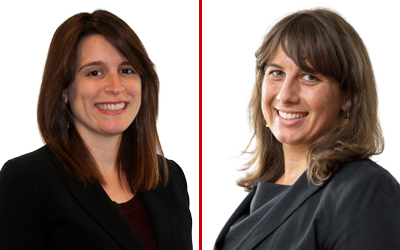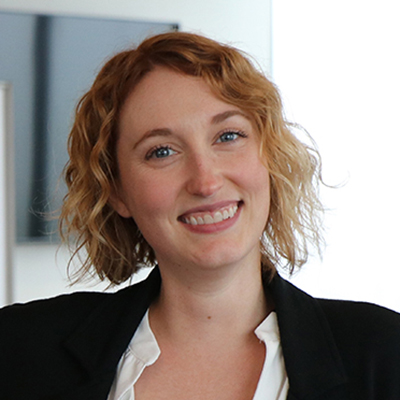Clinical Professors Chosen for Immigration Law Video Series
Professors Hlass and Sherman-Stokes explore the intricacies of immigration law for a leading education website.

Leading legal education website LegalEDWeb chose Boston University School of Law’s Clinical Associate Professor Laila Hlass and Clinical Fellow to discuss critical topics in immigration law in a recent video series discussing areas directly related to their practice expertise.
The company’s website notes that, “Every law professor has great teaching moments—great lessons that fully engage students, great exercises that put theory into practice, great ways to clarify complicated topics, great practical tips mastered after years of practical experience. […] Through the internet platform, LegalED opens up formerly isolated classrooms by sharing, showcasing, celebrating and inspiring innovative teaching.”
Professor Hlass spoke about the Deferred Action for Childhood Arrivals, or DACA, which allows eligible undocumented youths to obtain temporary protection in the United States for two years if they meet certain criteria like obtaining a high school diploma or GED certificate, or honorable discharge from the coast guard or armed services. Prof. Hlass notes that “since receiving DACA, 60% of those surveyed received a new job, more than half opened a bank account for the first time; it’s created all sorts of social and employment opportunities.”
Professor Hlass joined BU Law’s clinical faculty in July 2014, teaching in the Immigrants’ Rights Clinic. Previously, she was a fellow with the Center for Applied Legal Studies at Georgetown Law Center. In this role, she participated in all aspects of managing the clinic—through case selection, curriculum design, and budgeting—and specifically taught and supervised students in a semester-long asylum clinic.
Ms. Sherman-Stokes is a clinical fellow in the Immigrants’ Rights Clinic. She joined BU Law following her time as an Equal Justice Works Fellow at the Political Asylum/Immigration Representation (PAIR) Project where she represented non-citizens in removal proceedings before the Immigration Court and the Board of Immigration Appeals.
Featured in two videos, Sherman-Stokes takes the opportunity to highlight her practice in asylum law and the complicated intersections of criminal and immigration law. In the first video she speaks about the developing and underutilized area of humanitarian asylum law. The second explores the draconian consequences many noncitizens face as a result of so-called “aggravated felony” convictions.
BU Law’s Immigrants’ Rights Clinic (IRC) represents newly arrived unaccompanied children facing deportation, refugees fleeing human rights abuses, and other vulnerable immigrants in court and administrative proceedings. Students in IRC assume primary responsibility for building their cases, just as a lawyer would—through client interviewing and counseling, factual investigation, legal research and writing, working with expert witnesses, and conducting full hearings. Students may also participate in “Know-Your-Rights” visits at local jails/detention centers.
